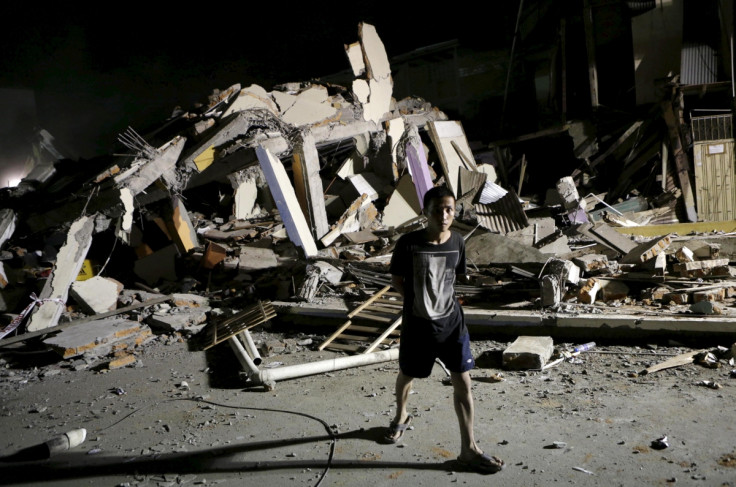Ecuador: Death toll rises to 272 as vice president says casualties expected to increase

The death toll from the biggest earthquake to hit Ecuador in decades has risen to 272 people. The 7.8 magnitude quake has left at least 2,527 others injured and rescue crews are frantically searching for survivors.
Around 10,000 soldiers and 4,000 police are being deployed in the devastated areas via helicopter and busses. The worst-affected zone was the coastal Manabi Province, where about 200 people were killed, according to Ecuador's national emergency management office.
Authorities in the area said 180 inmates at El Rodeo jail near the city of Portoviejo managed to escape during the chaos. According to reports, 20 were apprehended and some returned voluntarily, but most are still on the run. In Pedernales, a town of 40,000 near the epicentre, looting broke out after the "entire town" was levelled.
A state of emergency was declared in six provinces: Guayas, Manabi, Santo Domingo, Los Rios, Esmeraldas and Galapagos. Officials have warned that the death toll is likely to rise after residents were forced into the street as buildings shook wildly and infrastructure collapsed.
President Rafael Correa cut his visit to Italy short and arrived back in Ecuador on 17 April to deal with the crisis. He expected to make his first statements on home soil soon.
Correa previously insisted that the focus is on finding survivors of the earthquake. "Everything can be rebuilt, but lives cannot be recovered, and that's what hurts the most," he said.
Vice President Jorge Glas said there is a long list of missing people, but declined to disclose the number.
The US Geological Survey said the powerful earthquake hit a sparsely populated area about 15 miles from the nearby town of Muisne and was felt in neighbouring Colombia. According to David Rothery, a professor of geosciences at The Open University, the Ecuadorian quake on 16 April was six times as powerful as the one that struck Japan.
"It was the worst experience of my life," said survivor Jose Meregildo, who lives 300 miles away from the quake's epicenter. "Everybody in my neighbourhood was screaming saying it was going to be the end of the world."
As food and other key supplies are distributed, international aid began to arrive with the first resources coming in from Venezuela and Mexico. Columbia is sending rescue teams and search dogs while the EU, Spain and Peru also pledged aid.
© Copyright IBTimes 2025. All rights reserved.






















